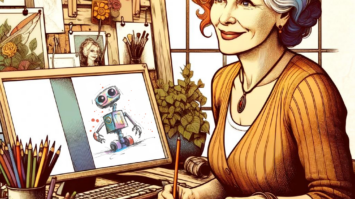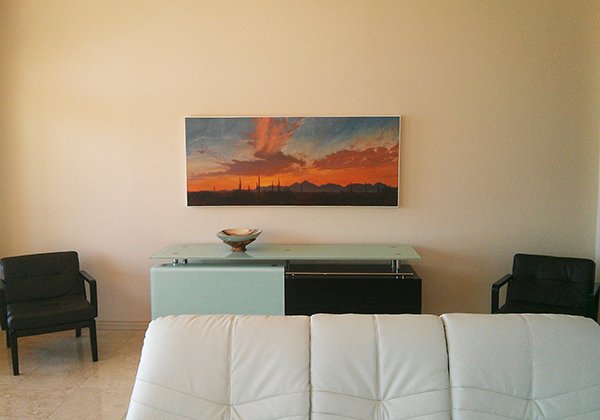
Embracing the Journey: Refocusing on Process and Systems in the Art World
As a passionate runner, I find myself outdoors, navigating the trails of Phoenix 3-4 times a week, covering 3-5 miles each time. There’s something invigorating about the fresh air and…

Embracing AI in the Art World: Introducing Theobot
As someone deeply ingrained in the art world, I’ve seen firsthand how technology can be a game-changer. I witnessed the advent of the internet, online galleries, and social media. Today,…

Anatomy of a Sale | How We Used Photoshop to Make a $5,000 Art Sale
How many times have you heard this: “I like this painting, but the size won’t work for my space”? I’m sure I’ve heard the phrase hundreds, if not thousands, of…

Debate | Should You Watermark Art You Are Posting Online?
I am frequently asked by artists whether they should watermark their artwork before sharing it online. There seems to be a pretty widespread concern that posting artwork images online could…

Debate: Should Artists Show Work in Doctor’s Offices, Banks and Other Business Locations?
Recently I received an email raising the question of whether it would be worthwhile for an artist to show her work in a doctor’s office. The doctor would display the…

From a Reader – Creating Art Sales by Promoting Your Work to Your Network of Acquaintances
I’ve often written that selling artwork is all about building relationships with potential buyers. There’s another side to this, however, in that people with whom you already have a relationship…

Mastering the Art of Pricing: Common Mistakes and Winning Strategies for Artists
Pricing artwork is one of the most challenging aspects of an artist’s career. It’s not just about assigning a dollar amount—it’s about conveying the value of your work to potential…

How to Stop Procrastinating Art Business Tasks
I have strong procrastination tendencies – I sometimes think that if it weren’t for the last possible moment, I wouldn’t get anything done. Better time management and organization have helped…

Breaking the Local Artist Myth: How Galleries Really Choose Their Roster
A question I often hear from artists is whether galleries focus exclusively on local talent. This isn’t just a common question among artists; even some collectors assume that a gallery’s…

Staying Resilient: How the 2024 Election Impacts the Art Market (and What Artists Should Do Next)
Several weeks ago, I shared my thoughts on why keeping politics out of your art business can be a sound strategy. While I still believe this approach helps maintain focus…